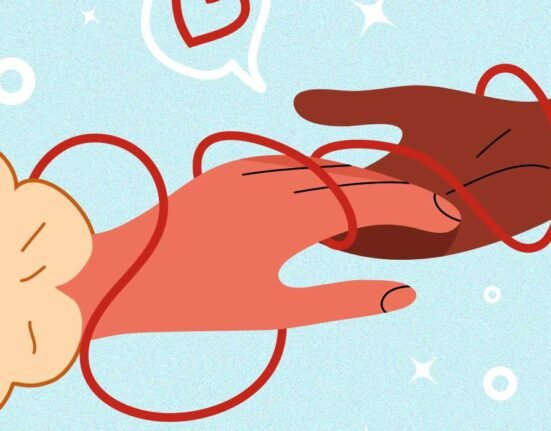“Have you ever wondered why you always feel weighed down, broken, and cry all night just because your friendship has broken? ; While your friend also experiences the same grief, although hers is due to a love breakup, not the friendship.” – Is it the same or different? Friendship breakups can be a painful experience, and they evoke a similar grief process to romantic relationship breakups. Grieving the loss or taking a particular time is crucial for healing. This means acknowledging the sadness, anger, and other emotions.
Read More: Outgrowing My Closest Friend: A Silent Grief
Understanding Grief: The Platonic Loss
The end of a beautiful friendship can be a painful experience that affects both, and it’s always underestimated in society. Leaving them alone, feeling isolated and not getting enough love can lead to changes in their emotions.
In our society, romantic relationship breakups are validated with sympathy and support from others, and this is not the same, what is seen in a friendship breakup, which is named as “not a big deal.” For instance, they only prioritise romantic relationships and leave friends mourning for a lost friendship, feeling isolated, invalidated, and alone. This lack of acknowledgement can increase the level of emotions and making it harder to process the grief.
Read More: Emotions: Play of Environment and Biology
Common Reasons Why Friendship Ends
When a friendship between two people is broken, it’s not about the loss of a person but about their memories, jokes, cringes, a comfort space are broken. There are reasons why they broke up:
1. Selfishness
The friends become selfless about themselves and others, and often lack respect, look only into their feelings, lack trust, are two-faced and take advantage of other people’s emotions. For instance, a friend might contact you only when they need something, but isn’t there when you need emotional support.
2. Lack of frequent interaction
Sometimes friendships fade due to life changes, distance, busy schedules, or shifting priorities. For example, your friend may move to a different place to continue studies, which makes it difficult to stay in contact.
Read More: How Lifestyle Changes Can Affect Your Health
3. Perceptions of friends and family
Sometimes, the way others view you can affect your friendship, such as disapproval from your family or friends, and your friend having poor personal hygiene or being inconsistent. For example, when your friend always has poor personal hygiene and bad eating habits, it creates a bad impression on your parents, leading them to stay away from them
4. Romantic involvement
Your friend may have a romantic interest in you or your partner, which makes you feel uneasy and romantically involved with someone you’re interested in. Imagine, when you start to like a person, your friend may like that person too. This eventually creates conflict and leads to a broken friendship. (Bockarova, 2021)
Read More: What does it mean to be in a Platonic Relationship?
The Stages of Grieving
Having broken up with our loved ones can deeply affect us, and it takes a longer time to heal. Here, there are 5 stages given by Dr. Elizabeth Kübler -Ross, commonly known as DABDA, which help us in understanding the ways we get out of the grieving situation. Here, Sarah, a 22-year-old, is struggling to come to terms with the sudden friendship breakup with Emily, her best friend of many years. Let’s see how she gets out of the grief. The stages are:
Read More: Stages of Grief
The stages are given below
1. Denial: It’s a commonly used defence mechanism by individuals, where they use it to protect themselves from hardships and reality.
~ So when Emily stopped contacting Sarah, she felt that Emily must have a difficult time or she must be busy, which is why she didn’t contact me.
2. Anger: It’s commonly expressed by showing off to others, breaking things, or engaging in self-harm, often directed at individuals outside close friendships.
~ As reality hits, Sarah gets angry. “How could she do this to me after all these years? “Doesn’t she care about me?” She may also get or ask for support from Emily’s friends.
3. Bargaining: They make attempts to regain their control, making deals or compromises, and often seek a reversal method for the situation.
~ She starts to say that “ If I apologise to Emily, she will come back to me “, making a compromise statement to feel good.
4. Depression: Feeling overwhelmed by sadness and losing interest in activities, physical and emotional exhaustion.
~ With a heavy heart, she becomes clear and depressed, saying, “ I’ll never find a true friend like her. Our friendship is over” She became sad, feeling hopeless and started to lose interest in activities.
5. Acceptance: Accepting the fact that the person is no more and finding ways to cope with the situation and reflecting on the loss, and moving forward in life.
~ When she started to acknowledge the reality and “ I should nurture my other friendships and find new ways to connect with them”, eventually she overcame with friendship breakup and started a new phase of life.
Sarah’s life can explain to us the ways we undergo the friendship breakup process and regain control in our lives again.(Tyrrell et al., 2023)
Read More: 10 Signs of Having a True Friendship
Tips to heal from friendship loss
Losing your close friend can be a devastating experience, leaving you with feelings of loss, alone, and unsure about ways to move forward. You’re not alone—friendship breakups are common, and with time, support, and self-reflection, you can heal and grow stronger.
- Allowing time for yourself: At times, we experience friendship loss, and it’s completely okay to feel sad, angry, and hurt during this phase. By giving time for yourself time allows you to process the emotions and grieve the loss of your friendship.
- Taking full Responsibility: If you take full responsibility for breaking and owning your mistakes and apologise. It is a crucial step that helps in developing confidence, courage and maintaining our integrity and facilitates the healing process.
- Prioritise Self-Care daily: Being kind to yourself and prioritising your self-care and emotional well-being over the sadness, anger. It takes time to relax, recharge, and engage in activities that bring you joy.
- Giving Respect to others’ Boundaries: If your friend needs space, give it to them and don’t force them to be with you, as it creates damage in the friendship. But also prioritise your own boundaries and emotional well-being, and establish boundaries that support your healing journey.
- Reflect and Learn from your experiences: Use the friendship breakup as an opportunity to understand, learn and grow. Reflecting on the experiences and lessons gained from the friendship loss can help in avoiding future breakups.
- Taking a Break from Social Media: Taking a short break from social media or limiting your exposure can help reduce the presence of your ex-friend online. This helps in reducing unnecessary stress and promotes healing. (Degges-White, 2023b)
Conclusion
Friendship breakups are a small phase of life that everyone experiences, and healing is a lifelong process that cures us from both the inside and the outside. We can heal from breakups by understanding our emotions, taking full responsibility, prioritising our well-being, surrounding ourselves with positive relationships, seeking trust from individuals, creating new boundaries, establishing new routines, and setting boundaries, which can make healing easier.
Read More: Importance of Friendships and Their Impact on Mental Health
FAQS
1. Does it take more time or less time to heal from a friendship breakup?
Healing takes time and varies for each person, but with support and self-reflection, you may start feeling better within weeks or months.
2. What are a few common signs that I can know my friendship is ending?
Common signs include growing distance, poor communication, frequent misunderstandings, and feeling unheard or undervalued.
3. Can I maintain mutual friendships with others after a friendship loss?
Yes, you can maintain mutual friendships, but prioritising self-care and setting healthy boundaries is essential. It is best to take time to reflect on your past experiences and consider whether rewinding the friendship is healthy for you or not.
4. What are the ways I can cope with feelings after a friendship breakup?
Ways to cope include practising self-care, taking responsibility, spending time with others, joining social activities, and seeking support from close friends or a therapist if needed.
5. What are the common mistakes I can avoid after a friendship breakup?
Avoid rushing into new friendships, stalking your ex, neglecting self-care, and holding onto negativity.
References +
Tyrrell, P., Harberger, S., & Siddiqui, W. (2023, February 26). Kubler-Ross Stages of Dying and Subsequent Models of Grief(Archived). StatPearls – NCBI Bookshelf. https://www.ncbi.nlm.nih.gov/books/NBK507885/
Bockarova, M., PhD. (2021b, September 10). Women blame selfishness; men point to distance. Psychology Today. https://www.psychologytoday.com/us/blog/romantically-attached/202109/55-reasons-why-people-end friendships#:~:text=We%20argue%20frequently.,giving%2C%20among%20the%20prime%20reasons
Schneider, G. S., PhD. (2021, November 23). Losing a friend hurts. Acceptance and self-kindness can help us heal. Psychology Today. https://www.psychologytoday.com/us/blog/frazzlebrain/202111/coping-the-loss-friendship-0
Degges-White, S., PhD. (2023, August 14). 3. Don’t forget to be a good friend to yourself. Psychology Today. https://www.psychologytoday.com/us/blog/lifetime-connections/202307/the-heartbreak-of-a-broken-friendship













Leave feedback about this